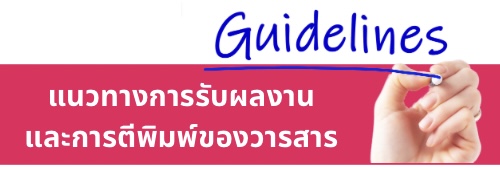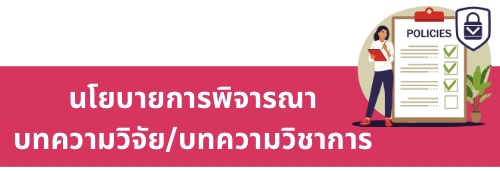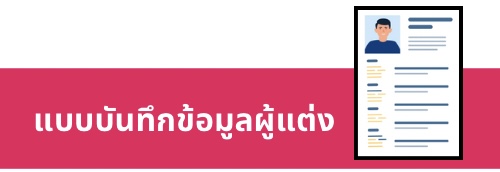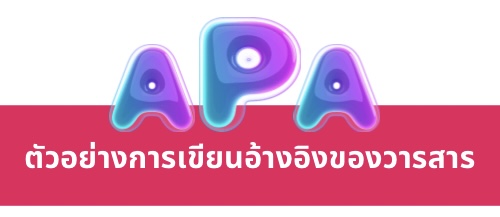ประสิทธิผลของรูปแบบการสร้างเสริมความรอบรู้ด้านสุขภาพเพื่อชะลอไตเสื่อม ต่อความรอบรู้ด้านสุขภาพ การจัดการตนเองและผลลัพธ์ทางคลินิกในผู้ป่วยโรคเบาหวานและโรคความดันโลหิตสูง เขตสุขภาพที่ 4
คำสำคัญ:
ความรอบรู้ด้านสุขภาพ, การชะลอไตเสื่อม, โรคเบาหวาน, โรคความดันโลหิตสูง, การจัดการตนเอง, ผลลัพธ์ทางคลินิกบทคัดย่อ
การวิจัยแบบกึ่งทดลองประเภทหนึ่งกลุ่มทดสอบก่อนหลังนี้ มีวัตถุประสงค์เพื่อเปรียบเทียบประสิทธิผลของรูปแบบการสร้างเสริมความรอบรู้ด้านสุขภาพในการชะลอไตเสื่อมต่อความรอบรู้ด้านสุขภาพ การจัดการตนเอง และผลลัพธ์ทางคลินิกในผู้ป่วยโรคเบาหวานและ/หรือโรคความดันโลหิตสูงที่มีโรคไตเรื้อรังระยะที่ 3 คัดเลือกกลุ่มตัวอย่างแบบเฉพาะเจาะจง จำนวน 171 ราย จากสถานบริการสุขภาพระดับตติยภูมิ ทุติยภูมิ และปฐมภูมิ 6 แห่งจาก 2 จังหวัดของเขตสุขภาพที่ 4 เครื่องมือในการทดลอง คือ รูปแบบการสร้างเสริมความรอบรู้ด้านสุขภาพในการชะลอไตเสื่อมที่พัฒนาขึ้นตามแนวคิดความรอบรู้ด้านสุขภาพและการจัดการตนเอง ผ่านการตรวจสอบคุณภาพจากผู้เชี่ยวชาญจำนวน 5 คน ได้ค่าดัชนีความตรงตามเนื้อ .95 เครื่องมือในการเก็บรวบรวมข้อมูล ได้แก่ แบบสอบถามความรอบรู้ด้านสุขภาพเพื่อชะลอไตเสื่อม และแบบประเมินพฤติกรรมการจัดการตนเองเพื่อชะลอไตเสื่อม ผ่านการตรวจสอบคุณภาพของเครื่องมือ ได้ค่าดัชนีความตรงตามเนื้อหา 1.00 และ .97 ตามลำดับ และตรวจสอบความเชื่อมั่นได้ .94 และ .96 ตามลำดับ การวิเคราะห์ข้อมูลโดยใช้สถิติเชิงพรรณนาและสถิติเชิงอ้างอิง paired t-test
ผลการศึกษาพบว่า ภายหลังได้รับรูปแบบการสร้างเสริมความรอบรู้ด้านสุขภาพในการชะลอไตเสื่อมเป็นระยะเวลา 7 เดือน กลุ่มตัวอย่างผู้ป่วยโรคเบาหวานและ/หรือโรคความดันโลหิตสูง มีคะแนนเฉลี่ยความรอบรู้ด้านสุขภาพเพื่อชะลอไตเสื่อม คะแนนพฤติกรรมการจัดการตนเองเพื่อชะลอไตเสื่อม และผลลัพธ์ทางคลินิก ดีขึ้นกว่าก่อนเข้าร่วมโครงการอย่างมีนัยสำคัญทางคลินิก รวมทั้งมีค่าการทำงานของไตที่แสดงให้เห็นถึงความสามารถในการชะลอไตเสื่อมได้ดีขึ้น จำนวน 138 ราย คิดเป็นร้อยละ 88.46 ดังนั้น รูปแบบการสร้างเสริมความรอบรู้ด้านสุขภาพสามารถชะลอไตเสื่อมได้อย่างมีประสิทธิภาพ
Downloads
เอกสารอ้างอิง
Aaby, A., Friis, K., Christensen, B., Rowlands, G., & Maindal, H. T. (2017). Health literacy is associated with health behavior and self-reported health: A large population-based study in individuals with cardiovascular disease. European Journal of Preventive Cardiology, 24(17), 1880-1888.
Batterham, R., Hawkins, M., Collins, P. A., Buchbinder, R., & Osborne, R. H. (2016). Health literacy: Applying current concepts to improve health services and reduce health inequalities. Public Health, 132, 3-12.
Bartz, A. E. (1999). Basic statistical concepts (4th ed.). New Jersey, NJ: Prentice Hall.
Beatty, L., & Lambert, S. (2013). A systemic review of internet-based self-help therapeutic interventions to improve distress and disease-control among adults with chronic health conditions. Clinical Psychology Review, 33(4), 609-622.
Boger, J. E., Demain, S., & Latter, S. (2013). Self-management: A systematic review of outcome measures adopted in self-management interventions for stroke. Disability Rehabilitation, 35(17), 1415-1428.
Geboers, B., de Winter, A. F., Spoorenberg, S. W., Wynia, K., & Reijneveld, S. A. (2016). The association between health literacy and self-management abilities in adults aged 75 and older, and its moderators. Quality of Life Research, 25(11), 2869 – 2877.
Health Data Center (HDC), Ministry of Public Health. (2021). Standard report group: Information to meet the kidney branch service plan. Retrieved from https://hdcservice.moph.go.th/hdc/reports/page.php?cat_id=e71a73a77b1474e63b71bccf727009ce
Heine, M., Lategan, F., Erasmus, M., Lombaard, C., Carthy, N. M., Oliver, . . . Hanekom, S. (2021). Health education interventions to promote health literacy in adults with selected non-communicable diseases living in low-to-middle income countries: A systematic review and meta-analysis. Journal of Evaluation in Clinical Practice, 27(6), 1417-1428.
Hu, Y., & Zhang, Z. (2015). Patient education-a route to improve patient experience in Chinese hospitals? Patient Education and Counseling, 98(12), 1651-1652.
Kanfer, F. H., & Gaelick-Buys, L. (1991). Self-management methods. In F. H. Kanfer & A. P. Goldstein (Eds.), Helping people change: A textbook of methods (4th ed.) (pp. 305–360). New York, NY: Pergamon Press.
Kidney Replacement Therapy Registration Subcommittee, The Nephrology Society of Thailand. (2021). Renal replacement therapy information (2020). Retrieved from https://www.nephrothai.org/wpcontent/uploads/2022/06/Final-TRT-report2020.pdf
Kueasuk, C. (2020). Health literacy and self-management among older persons with chronic kidney disease (Master of nursing science program). Faculty of Nursing, Chiangmai University, Chiangmai. Retrieved from http://cmuir.cmu.ac.th/jspui/handle/6653943832/69662
Lhaosupab, N., Prueksaanantakal, N., Yaprom, C., & Chiangkhong, A. (2021). Health literacy for chronic illness prevention among adults in Bangkok metropolitan: Development and validation of health literacy scale. Ramathibodi Nursing Journal, 27(1), 122-135.
Mackey, L. M., Doody, C., & Werner, E. L. (2016). Self-management skills in chronic disease management: What roles does health literacy have? Medical Decision making, 36(6), 741-759.
Margat, A., Gagnayre, R., Lombrail, P., de Andrade, V., & Azogui-Levy, S. (2017). Health literacy and patient education interventions: A review. Sante Publique, 29(6), 811-820.
National Health Security Office, District 1, Chiang Mai. (2021). Chronic kidney failure service management fiscal year 2021. Retrieved from https://www.banthihospital.org/banthimain2_Section8_บริการกองทุนไตวายเรื้อรัง_1.pdf
National Health Security Office. (2022). NHSO clarifies use statements: Local health Insurance fund organizes a project to slow down kidney degeneration and adult diapers. Retrieved from https://www.nhso.go.th/news/3657
Nutbeam, D. (2015). Defining, measuring, and improving health literacy. Health Evaluation and Promotion, 42(4), 450-455.
Nutbeam, D. (2017). Discussion paper: Promoting, measuring, and implementing and implementing health literacy-Implications for policy and practice in non-communicable disease prevention and control. Retrieved from https://www.researchgate.net/publication/315091628
Pragodpol, P., & Intana, J. (2019). The effect of the stroke warning signs program on stroke’s awareness, knowledge, and practice to decrease the stroke risk in hypertensive patients. Journal of Phrapokklao Nursing College, 30(2), 88-100.
Ruiz, S., Brady, T. J., Glasgow, R. E., Birkel, R., & Spafford, M. (2014). Chronic condition self-management surveillance: What is and what should be measured? Preventing Chronic Disease, 11(19), 1-14.
Sinthuchai, S., Namdej, N., Kittiboonthawal, P., Dejpitaksirikul, S., Chuencham, J., Uboonwan, K., . . . Pragodpol. P. (2022). Development of the health literacy model to enhance self-management behaviors and health outcomes among older adults with type II diabetes mellitus and hypertension in primary care cluster Saraburi province. Thai Journal of Nursing Council, 37(1), 58-74.
Schaffler, J., Leung, K., Tremblay, S., Merdsoy, L., Belzile, E., Lambrou, A., & Lambert, S. D. (2018). The effectiveness of self-management interventions for individuals with low health literacy and/or low income: A descriptive systematic review. Journal General Internal Medicine, 33(4), 510-523.
Schapira, M. M., Swartz, S., Ganschow, P. S., Jacob, E. A., Neuner, J. M., Walker, C. M., . . . Fletcher, K. E. (2017). Tailoring educational and behavioral interventions to level of health literacy: A systematic review. MDM Policy & Practice, 2(1), 1-12.
Sorensen, K., Van Den broucke, S., Fullam, J., Doyle, G., Pelikan, J., Slonska, Z., . . . Brand, H. (2012). Health literacy and public health: A systematic review and integration of definitions and models. BMC Public Health, 12(80), 1-13.
Stormacq, C., Wosinski, J., Boillat, E., & Broucke, V. D. (2020). Effects of health literacy interventions on health-related outcome in socioeconomically disadvantaged adults living in the community: A systematic review. JBI Evidence synthesis, 18(7), 1389-1469.
Tanasugarn, C., & Neelapaichit, N. (2016). An enlightening survey of health literacy in patients with diabetes and hypertension. Nonthaburi: Division of Health Education Department of Health Service Support.
Tavakoly-Sany, S. B., Behzhad, F., Ferns, G., & Peymen, N. (2020). Communication skills training for physicians improve health literacy and medical outcomes among patients with hypertension: A randomized controlled trial. BMC Health Services Research, 20(60), 1-10.
The Office of The Health Promotion Fund. (2020). Statistics revealed: More than 8 million Thais are addicted to salt and chronic kidney disease. Retrieved from https://www.thaihealth.or.th/Content/51283
Theeranutra, A., Methakanasak, N., Surit, P., Rouy Sung-noen, V., Sansom, D., Srina, C., . . . Sudjom, N. (2017). Development of health service system for delaying dialysis in patients with chronic kidney disease. Nonthaburi: Public Health Systems Research Institute.
Thomas, M. C., Cooper, M. E., & Zimmet, P. (2016). Changing epidemiology of type 2 diabetes mellitus and associated chronic kidney disease. Retrieved from https://www.ncbi.nlm.nih.gov/pubmed/26553517
Tsai, C. W., Ting, I., Yeh, H-C., & Kuo, C-C. (2017). Longitudinal change in estimated GFR among CKD patients: A 10-year follow-up study of an integrated kidney disease care program in Taiwan. Retrieved from https://www.ncbi.nlm.nih.gov/pubmed/28380035
WebAdmin. (2022). The central limit theorem. Retrieved From https://www.solutioncenterminitab.com/blog/dice-dragons-and-getting-closer-to-normal-distribution-the-central-limit-theorem/#more-5040
WHO Global Coordination Mechanism on NCDs, Young Professionals Chronic Disease Network. (2018). Health literacy for NCD prevention management and prompting equality. How to use health literacy to improve understanding and responses to NCDs. Retrieved from https://www.who.int/global-coordination-mechanism/working-groups/hl_youth.pdf

ดาวน์โหลด
เผยแพร่แล้ว
รูปแบบการอ้างอิง
ฉบับ
ประเภทบทความ
สัญญาอนุญาต
ลิขสิทธิ์ (c) 2022 วารสารพยาบาลตำรวจ

อนุญาตภายใต้เงื่อนไข Creative Commons Attribution-NonCommercial-NoDerivatives 4.0 International License.
ผลงานที่ได้ตีพิมพ์แล้วจะเป็นลิขสิทธิ์ของวารสารพยาบาลตำรวจ














